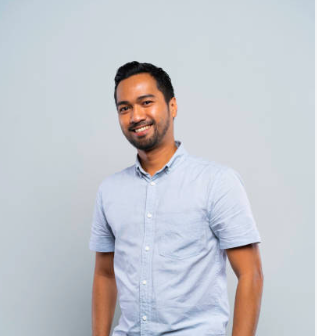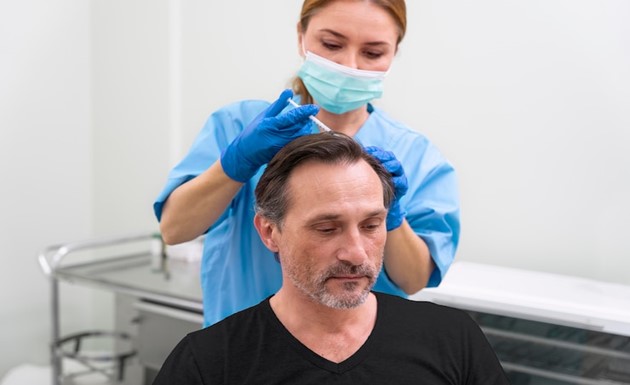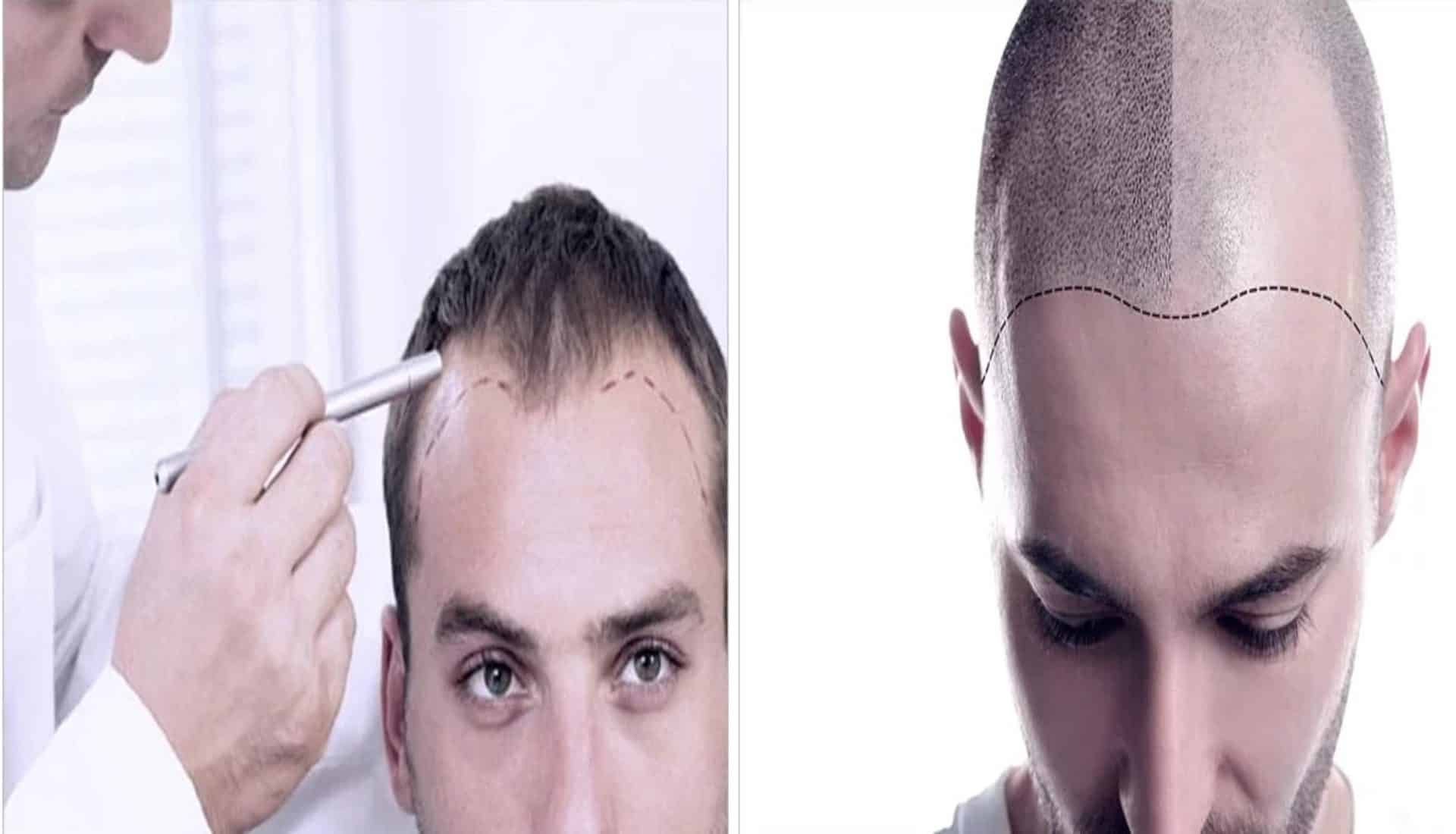
The Cost of Hair Transplant: 18 things you shouldn’t do after getting one

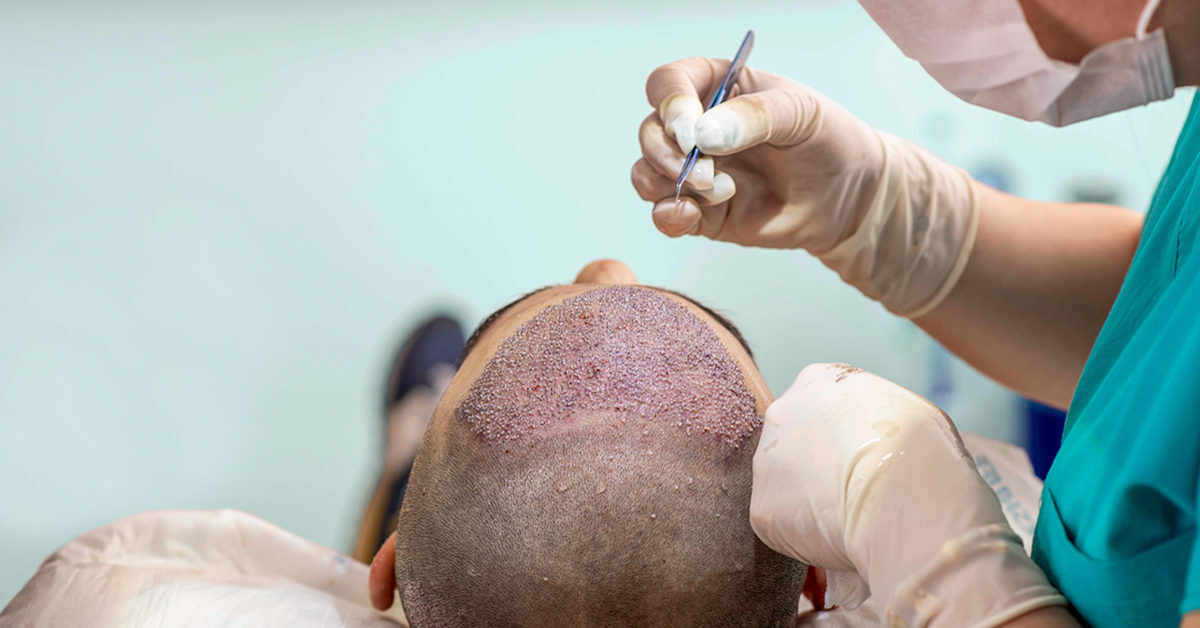
Immediately Following Your Hair Transplant, Here Are 18 Mistakes You Shouldn’t Make
All of us here at Nexus Clinic in Malaysia, the best hair transplant Malaysia have, feel strongly that everyone, regardless of age, should be able to take pride in their hair. However, once you finish treatment, it’s crucial that you know what to avoid doing. Find out how to take care of yourself after receiving medical treatment by reading on.
Things to Avoid Immediately Following the result of your searching, “hair transplant near me.”
1. DRIVING
In certain cases, hair transplant surgery is done while the patient is deeply sedated. Do not operate a motor vehicle for at least 24 hours after receiving a sedative. It is imperative that you arrange for transportation to and from your scheduled appointment.
2. LIE-FLAT SLEEPING
The first week after treatment, sleeping with your head elevated is crucial in reducing the likelihood of swelling. It may take only a few days for some patients to feel better after sleeping with their head elevated. Remember, though, that some people don’t have swelling after getting hair implants. You should be able to go to sleep as usual if the only change from your usual routine is a tiny pressure around your brow.
To alleviate some of the discomfort of mild swelling, try turning your recliner into a bed. Rather than sleeping on top of four pillows, some people find that sitting in a recliner is more pleasant. The optimal head position is 45 degrees.
3. PUTTING YOUR MEDICATIONS ASIDE
Is hair transplant safe? If you’re ignoring the warnings on medications you take after a hair transplant, then not. It’s one of the worst things you can do. In order to reduce the possibility of infection, antibiotics should be taken precisely as directed. Also, if the warning label on your prescription analgesic states that you should not operate heavy machinery, then you should not drive after taking the medication. Also, watch your drug intake to make sure you’re not at unsafe levels. Finally, if the label instructs you to do so, take your prescription at mealtime. Taking pain relievers or other medications like that on an empty stomach can lead to unpleasant side effects.
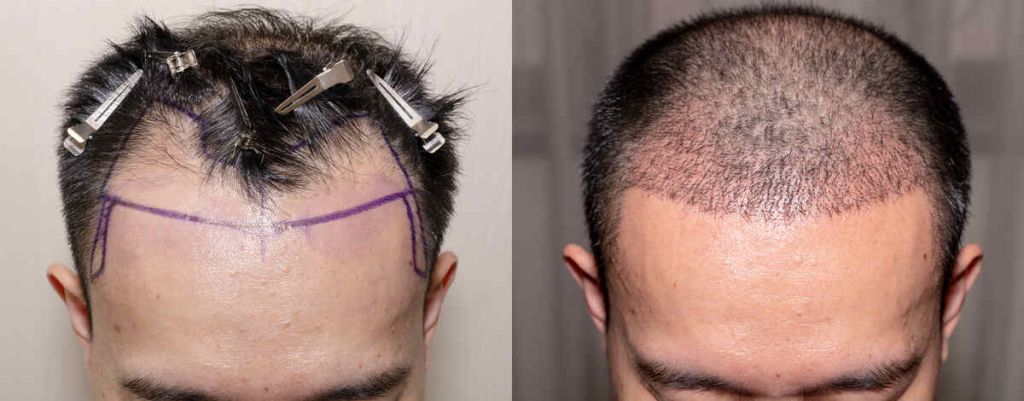
4. LACK OF R.I.C.E AWARENESS
When you were a kid and you got hurt, did your parents teach you the RICE method? Rest, ice, compression, and elevation are the cornerstones of care for “injuries” characterized by swelling. The height is something we’ve already discussed. If you see any swelling, put ice on the area right above your eyebrows for 20 to 30 minutes. In addition to being effective, this is a great preventative precaution. This is recommended three to four days following hair replacement, even if you don’t have any swelling. Sometimes, a simple application of ice is all it takes to feel better.
5. WASHING YOUR HAIR OR TAKING A BATH
Avoid washing your hair for the first 48 hours after a hair transplant Malaysia offered to you . After the third day, you can gently wash your hair. Avoid harsh hair washing until the sixth day post-treatment. Don’t use full-force and aim the water stream at your head, either. In place of water from the tap, use a cup to wash the shampoo out of your hair. Do not scrub the conditioner into your scalp, but rather apply it softly if you need to relieve itching.
6. HAIR-DYEING
Hair dying is not recommended for the first four weeks after hair replacement. If you know you won’t be able to go without hair dye for four weeks, it’s best to get it done just before your treatment. Dying your hair just before a hair transplant has no detrimental consequences, but the harsh chemicals in hair color can reduce the viability of the transplanted follicles thereafter. Following follicle transplantation, the recipient follicles are extremely vulnerable for several weeks. They require extensive medical attention at the present time.
7. NEGLECTING TO REPLENISH FLUIDS
Though everyone understands the importance of water, few realize how critical it is to be well hydrated in the days leading up to and immediately following a transplant. You’ll feel more at ease and heal more quickly if you drink plenty of water. Spending a few weeks actively trying to drink 10% extra water can have a huge impact on how quickly you recover. Downloading an app that alerts you to drink one cup of water (8 fluid ounces) every hour while awake is a great way to make sure you’re getting enough water throughout the day.
Half your body weight in ounces is a decent rule of thumb for how much water you should drink daily. Those who weigh 120 pounds, for instance, need to replenish their water stores by consuming 60 ounces (7.5 cups) per day. Not every circumstance calls for this, though. When evaluating your hydration levels, it is best to look at your urine. The color range is from nearly clear to a very light lemon yellow.
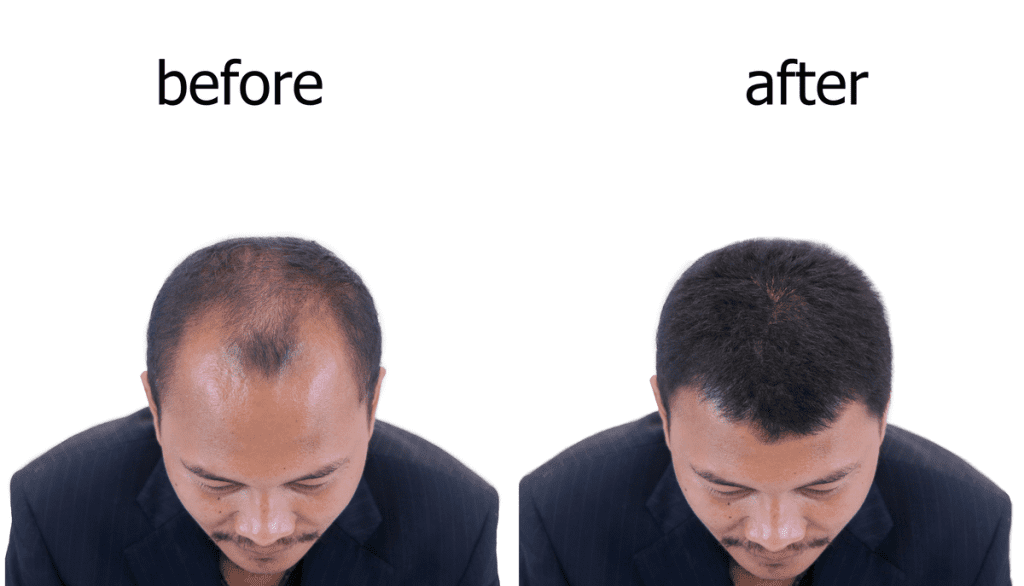
8. HOPING HAIR LOSS WON’T HAPPEN
Hair loss is a natural and healthy aspect of the hair development cycle and is often unexpected by patients after hair transplant surgery. At any given time, about 10–15 percent of your hair is in the “shedding” phase. Don’t freak out if you experience mild to moderate shedding in the first four weeks after finishing your treatment. Not one of your hair follicles is harmed. In three months, new, stronger, healthier, and thicker hair will have emerged from those follicles.
9. STOMACH SLEEPING
Many of us frequently turn over in bed or sleep on our stomachs. Avoid sleeping on your stomach or side for at least a week following therapy. Do not sleep with your new hairline pressed on your pillow. If you have trouble sleeping and find yourself tossing and turning, try a weighted blanket or a recliner. It’s a minor inconvenience to make sure your treatment works as intended.
10. CARELESSLY TOUCHING SCALP
For the first three days after treatment, it is advised to avoid touching the region entirely. After the initial 72 hours, you should be very careful while touching your scalp. Instead of scratching an irritated scalp, try applying some conditioner softly.
11. BASKING IN THE SUNSHINE
During the first two weeks following a hair transplant, you should keep your scalp out of direct sunlight, especially between 10 a.m. and 2 p.m. If you must go outside at that time, try to limit your exposure to the elements. Make sure you don’t get a sunburn and don’t go scuba diving if you’re going on vacation to “recover” from hair restoration.
12. PUT ON YOUR COMPLETE ATHLETIC OUTFIT
Wearing a ball cap to match your athletic outfit can seem like a requirement. Within 72 hours of treatment, however, headwear is not recommended. Although scabs are a common “side effect” of hair transplantation, it is important to avoid touching the treated area until they have hardened.
13. SETTING OUT TO BREAK OWN RECORDS
Avoid strenuous activity, including exercise, in the days after your hair transplant. This means that you shouldn’t strive to break your own record for heaviest lift or fastest 100-meter dash right now. Light to moderate exercise is fine for the first week after therapy, as long as the patient’s heart rate and blood pressure remain within safe, normal ranges.
Walking, yoga, and tai chi are great alternatives to your regular exercise regimen during the first week after therapy. You can go on a leisurely bike ride three days after treatment. You should wear protective headgear and high-visibility clothing.
14. BREAKING A SWEAT
Unfortunately, avoiding intense exercise for the first week after a hair transplant is not enough. Don’t do anything else, like relaxing in a sauna, that will make you sweat excessively.
16. TO ENGAGE IN SEXUAL ACTIVITY
For the first week after getting a hair transplant, you should avoid sexual activity. Although it is true that regular sex helps to lower blood pressure over the long run, your blood pressure and heart rate always go up during sex itself. Your heart rate, blood pressure, or both may increase to unsafe levels, jeopardizing your transplants. The treatment site may also become wet or be accidentally touched during sexual activity. Scab formation can be hindered and the chance of infection raised.
15. CONSUMING ALCOHOL AND TOBACCO
Consuming alcoholic beverages can cause dehydration due to their diuretic properties. Because of this, your healing period may be slowed and you may experience more pain. In addition, it can cause dangerously high blood pressure and cut off essential nutrients and oxygen to the brain. For the first five days following surgery, you should abstain from alcohol.
Stop smoking as much as possible in the months leading up to your hair transplant. The stress of trying to quit can cause your blood pressure to rise. Smoking can cause a significant increase in blood pressure, depending on your baseline reading. Just keep in mind that fresh, healthy hair can’t grow without adequate blood supply. For the first thirty-one days after therapy, you should avoid all forms of nicotine.
18. YOU CAN HAVE YOUR CAKE AND EAT IT TOO!
17. CONSUMING QUICK MEALS
Fast food is bad for you, but avoiding sugary drinks, sweets, and other processed foods is even more crucial. These meals and drinks are not only deficient in nutrients vital to your hair’s health, but they can also lead to blood sugar issues that slow your recovery.
If you’re asking ‘is hair transplant worth it’, our answer is yes! If and only if you’ll adhere to the restrictions above.
You might not feel like cooking, and the convenience of fast food is appealing, when you’re feeling under the weather. Food and water are essential to a speedy recovery, but maintaining a healthy blood pressure and fluid levels are just as crucial. Hair that is thick, healthy, soft, sleek, strong, and gorgeous requires a lot of nutrients. Fast food, unfortunately, rarely provides any real nutrition and is often high in calories but low in anything else. Look for a supplement that has calcium, magnesium, protein, iron, vitamin B6, zinc, biotin, and enough protein if you find it difficult to receive enough of these nutrients through your diet. A sufficient protein intake should negate the need for further amino acid supplements.
You may also like
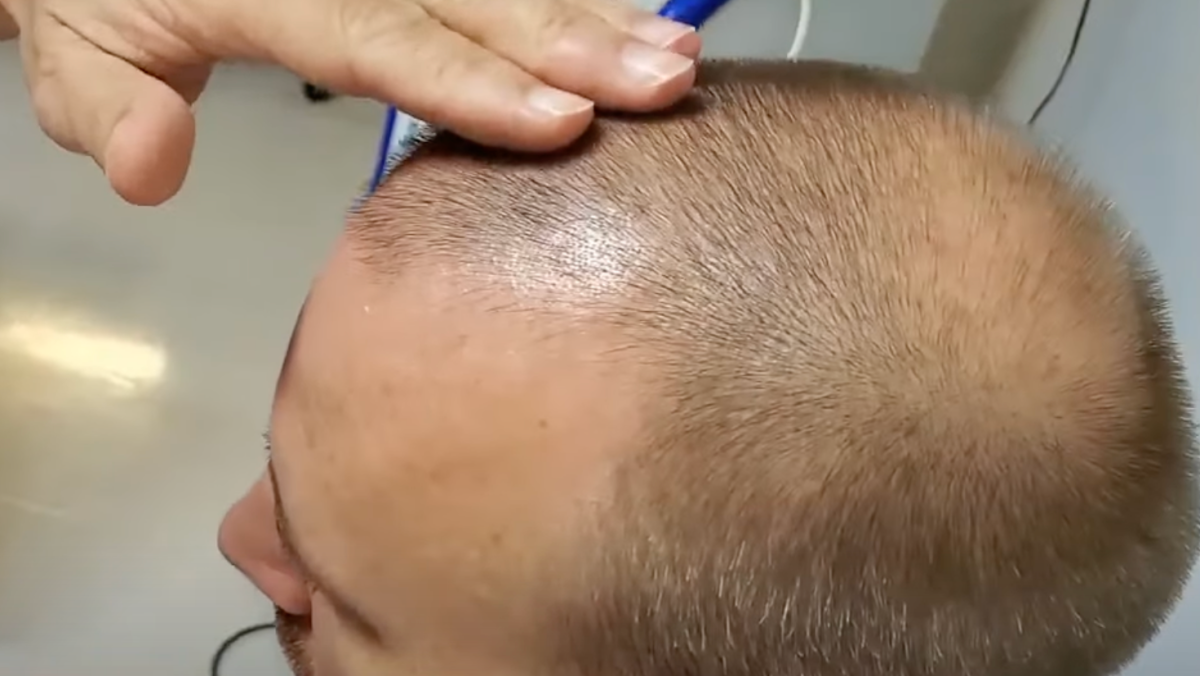
Stem Cell Therapy for Hair Loss: A Natural Solution
Adding {{itemName}} to cart
Added {{itemName}} to cart

